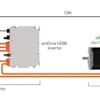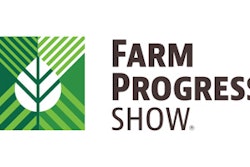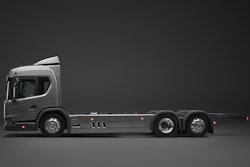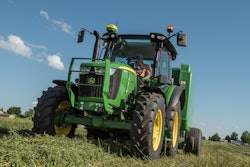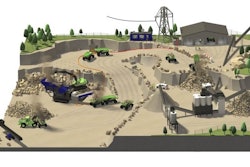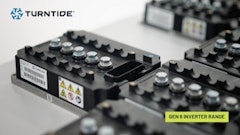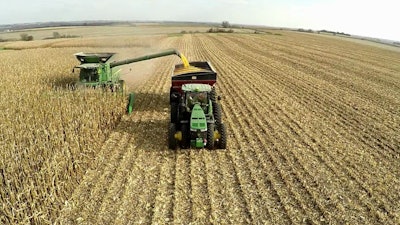
The largest and oldest outdoor agricultural machinery exhibition in the United States got a firsthand look at driverless tractor technology and a glimpse into the future of automation in agriculture.
Smart Ag, a technology company based in Ames, IA, introduced at the 2018 Farm Progress Show a full-stack software platform and aftermarket kit for driverless tractors. This revolutionary development in agriculture automation was displayed at Farm Progress for the first time with field demonstrations of AutoCart – a software application that fully automates a grain cart tractor and provides farmers much needed labor assistance during harvest.
The innovative technology from Smart Ag allows farmers to automate existing equipment and maximize is capacity and efficiency. Smart Ag Founder and CEO, Colin Hurd, said AutoCart will address the issues of labor, profitability and productivity for today’s farmer.
“At Smart Ag, we strongly believe the best way for producers to increase the capacities of their farms is to allow them to perfect the operation of their machinery – and that can be accomplished by using Smart Ag’s automation and driverless tractor technologies,” Hurd says. “We know with knowledge and the right technology the American farmer can do anything. In today’s challenging ag economy, farming shouldn’t be determined by what the equipment manufacturers decide is better or more profitable. If there’s one thing the Farm Progress Show has taught us over its 65-year history is that agriculture is at its best when farmers have choices.”
Smart Ag’s driverless tractor technology provides a solution to one of the biggest challenges facing every farmer – critical labor shortages during harvest. The AutoCart system performs the same function as a driver, only it is safer, and more reliable and sustainable.
“AutoCart empowers farmers to leave the cab and complete their operations faster and with less labor than ever before,” Hurd says. “By improving efficiency, productivity and profitability, this technology has the potential to deliver significant change to U.S. crop production.”
Over 2-1/2 years in development, AutoCart, along with the tractor aftermarket kit, is a plug-and-play system that automates existing grain cart tractors. The technology allows a combine operator to set staging and unloading locations in a field, adjust speed, monitor location and command the grain cart to synchronize precisely to the speed and direction of the combine. After it is loaded, the AutoCart automatically returns to an unloading point elsewhere in the field.
The cost of the system is $35,000 to $40,000 and is comparable to retrofitting a sprayer or planter with precision technology. Orders for AutoCart have been filled for 2018, and the Smart Ag development team will be delivering and installing 15-20 systems throughout the Midwest, MidSouth and Manitoba, Canada for use in this fall’s harvest and for post-harvest dealer demonstrations.
“As part of our development strategy, we prioritized the ongoing verification of the technology over unit sales, that’s why we intentionally limited the number of AutoCart units going out this year,” says Justin Heath, Chief Marketing Officer with Smart Ag. “This will allow us to expand our testing over more acres during harvest, provide more field demos this fall for farmers and build a national dealer network.”
Heath says that 10 professional precision ag and farm implement dealers across the U.S. and Canada have already committed to selling Smart Ag technology, and the company will be expanding its dealer footprint over the coming months in preparation for a 2019 large-scale commercial launch.
One of the first AutoCart dealers is Scott Burroughs with Bottom Line Solutions in Morton, IL, a dealership that represents 15 different companies in the world of precision agriculture. Burroughs says he was immediately impressed with Smart Ag’s vision and practical approach to autonomous technology.
“We’ve seen concept vehicles for years, but this is the first time a farmer can take a tractor from his own shed, turn it into a driverless piece, and be more efficient in his operation. Then later that day with just the flip of a switch, he can drive it like a normal tractor and carry on with his everyday farming,” he says. “We’re always looking for new technology that can impact the operations of our customers, and clearly AutoCart is it.”
In November, orders for AutoCart will be accepted for delivery in spring 2019.



